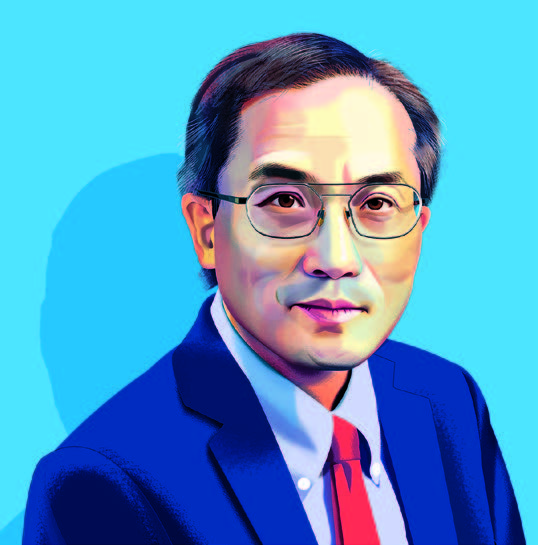Wei Liu, Ph.D., wins Early Career Award

Wei Liu, Ph.D.
Algorithms for safer, more effective proton therapy
Proton beam therapy delivers precise, finely controlled radiation. But that narrow focus can also cause problems: small patient motions — even breathing — can lead to radiation being delivered off-target.
Wei Liu, Ph.D. (RADO ’13), has helped address this challenge and other difficulties facing proton therapy, including range and setup uncertainties. His research has been revolutionary, producing algorithms that allow physicians to utilize proton therapy with greater safety and efficacy.
“His expertise in computational methods and his biomedical knowledge have contributed greatly to the advancement of translational research in proton therapy,” says Steve Jiang, Ph.D., director of the Division of Medical Physics and Engineering at University of Texas Southwestern Medical Center. Dr. Jiang is also the David A. Pistenmaa, M.D., Ph.D., Distinguished Chair in Radiation Oncology and vice chair of the Department of Radiation Oncology at the center. “He has made significant contributions to the field, especially in robust optimization and robustness quantification in intensity-modulated proton therapy.”
Dr. Liu is a professor of radiation oncology at Mayo Clinic College of Medicine and Science and a consultant in the Department of Radiation Oncology at Mayo Clinic in Arizona. He is a nationally and internationally recognized expert in medical physics.
In addition to his research designing robustly optimized proton beam therapy, Dr. Liu’s algorithm for linear energy transfer (LET) modeling and optimization has already been used in proton therapy to successfully decrease the risk of rectal bleeding in patients being treated for prostate cancer, the risk of brain necrosis in patients treated for brain tumors, and the risk of mandible osteoradionecrosis in patients treated for head and neck cancer. His in-house treatment planning system, Shiva, has been in routine use at the proton center at Mayo Clinic in Arizona for over nine years, benefiting approximately 6,000 patients. More recently, Dr. Liu’s team has applied AI, especially generative AI, in the full spectrum of radiation oncology practice to significantly improve the efficiencies of numerous clinical tasks.
Dr. Liu is an associate editor or editorial board member for a dozen journals, including the International Journal of Radiation Oncology – Biology – Physics, IEEE Transactions on Medical Imaging, and Radiotherapy & Oncology. He currently serves as co-chair of the Thoracic Subcommittee of the Particle Therapy Co-Operative Group, a leading global organization for proton and particle therapy, proof of his significant international stature. Dr. Liu also serves on the National Institutes of Health (NIH) Imaging Technology Development study section and as a reviewer for the Netherlands Organisation for Scientific Research (NWO/ZonMw) and KWF Kankerbestrijding (Dutch Cancer Society).
His research has earned numerous grants from several sources and has provided over $10 million to further his work as a principal investigator, including two R01 federal grant awards from the NIH.
He is author or co-author of three book chapters and 142 accepted or published peer-reviewed manuscripts, including publications in prestigious journals such as The Lancet Oncology and Nature Medicine. Dr. Liu has 14 patents, and many of his algorithms have found their way into commercial projects that are used to treat tens of thousands of cancer patients worldwide.
Dr. Liu’s numerous honors and awards include the John S. Laughlin Early-Career Scientist Award from the American Association of Physicists in Medicine in 2019, a Mentored Quantitative Research Career Development Award (K25) from the NIH and National Cancer Institute, and the naming of the term “Liu Limit” for his pioneering work in plasma astrophysics. He is a fellow of the American Association of Physicists in Medicine.
The Early and Mid-Career Alumni Awards recognize Mayo Clinic alumni who have made robust contributions to their areas of expertise in the realms of education, clinical practice, clinical and scientific research, and administration. Beyond their professional output, they demonstrate selfless community service and have consistently acted in a manner that is aligned with Mayo Clinic values. Read about the other 2024 recipients here.
Illustrations by Nigel Buchanan.